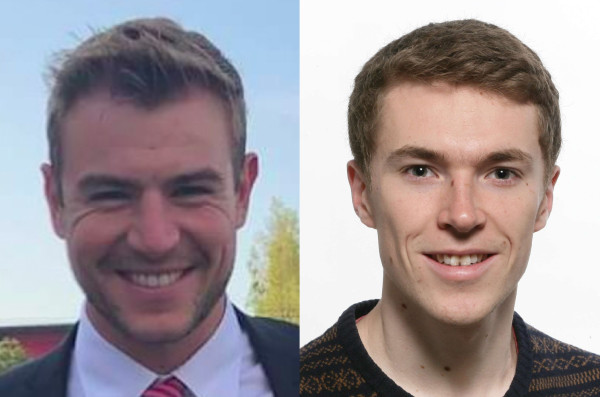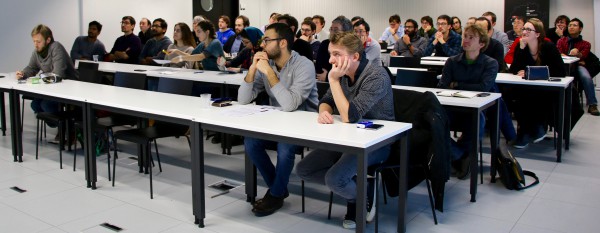MARVEL Junior Seminar — October 2023

Each seminar consists of two presentations of 25 minutes each, allowing to present on a scientific question in depth, followed by time for discussion. The discussion is facilitated and timed by the chair.
Onsite participation
11:45 — Pizzas will be served in the MED building atrium, second floor
12:15 — Seminars take place in EPFL room Coviz2 (MED 2 1124)
Online participation
Starting at 12:15:
https://epfl.zoom.us/j/68368776745
Password: 1923

Abstracts
Talk 1 — Ab-initio thermodynamics of multi-component refractory alloys
Yann Müller
Laboratory of Materials Design and Simulation (MADES), EPFL
Precipitation-hardened refractory alloys are attractive candidates for high-temperature applications. Although refractory alloys have high melting points, they typically have a high density, poor oxidation resistance, insufficient yield strength, and low ductility. One strategy that is being actively explored to enhance the mechanical properties of refractory alloys is precipitation hardening. Alloying elements and heat treatment conditions must be carefully chosen to enable the formation of a desirable microstructure comprised of fine precipitates embedded within a disordered matrix phase. In this talk, we will utilize first-principles electronic structure calculations and statistical mechanics techniques to discern precipitation mechanisms in high-entropy refractory alloys. High-throughput computations and rigorous Monte-Carlo simulations will be employed to elucidate the thermodynamics of precipitate formation in refractory alloys. Design rules informed by our first-principles models will be leveraged to guide alloy designers towards alloy chemistries and processing conditions with superior thermal and mechanical properties.
Talk 2 — Koopmans functionals: accurately and efficiently predicting spectral properties with a functional formulation
Edward Linscott
Laboratory of Theory and Simulation of Materials (THEOS), EPFL
Over the past fifteen years we have developed Koopmans functionals, a computationally efficient approach for predicting spectral properties in a functional framework [1]. These orbital-density-dependent functionals impose a generalized piecewise linearity condition, ensuring that orbital energies match the corresponding electron removal/addition total energy differences (in contrast to semi-local DFT, where a mismatch between the two lies at the heart of the band gap problem and the unreliability of Kohn-Sham orbital energies more generally). This strategy proves to be very powerful, yielding molecular orbital energies and band structures with comparable accuracy to self-consistent GW approaches but at greatly reduced computational cost and complexity [2]. This talk will cover the theory of Koopmans functionals, explain recent developments and extensions [3], and demonstrate how we perform these calculations with the open-source package "koopmans" [4].
1. Dabo et al., arXiv 0901.2637 (2009); Dabo et al., PRB 82 (2010); Borghi et al., PRB 90 (2014)
2. Nguyen et al., PRX 8 (2018); Colonna et al., JCTC 15 (2019);
3. De Gennaro et al., PRB 106 (2022); Colonna et al., JCTC 18 (2022)
4. Linscott et al., JCTC (2023); koopmans-functionals.org
Check the list of the next MARVEL Junior Seminars here.
Low-volume newsletters, targeted to the scientific and industrial communities.
Subscribe to our newsletter